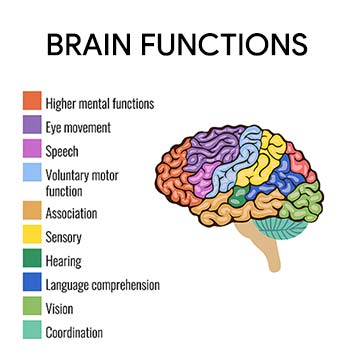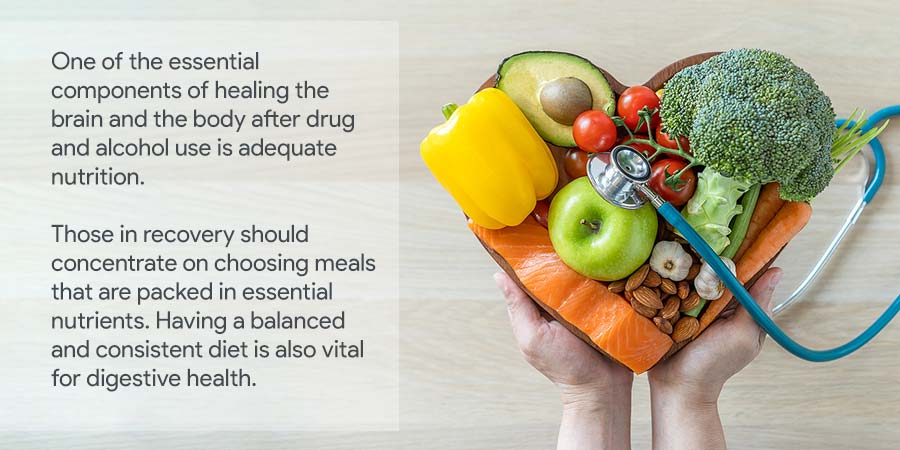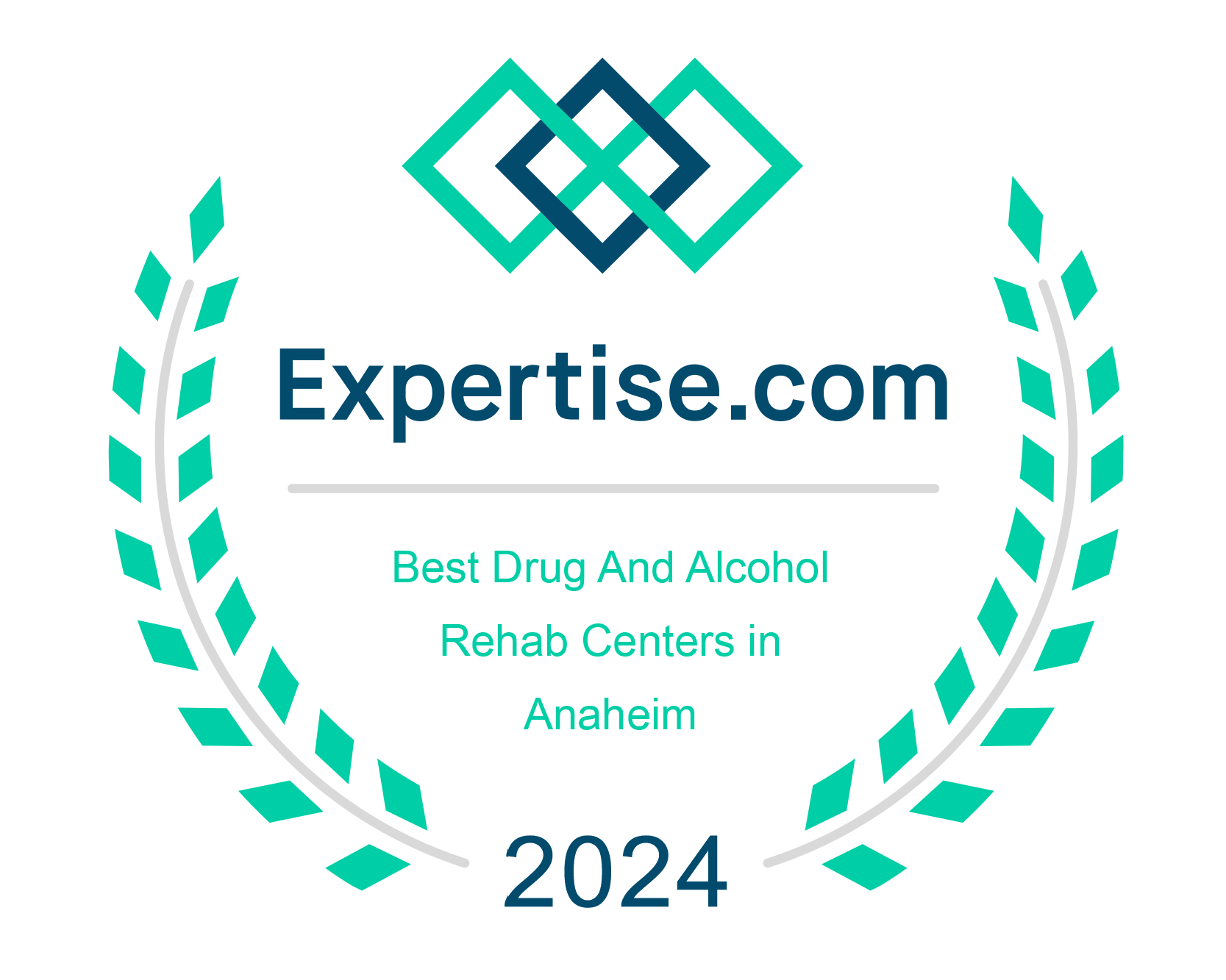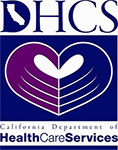Healing the body from the effects of substance abuse is a process that can take months, if not years. Physical healing goes beyond the act of eliminating substances from your system. Instead, complete recovery involves building a solid foundation to achieve an overall healthier way of life.
Can the Body Completely Heal After Prolonged Alcohol or Drug Use?
How Alcohol and Drugs Affects the Brain
Understanding the long-term physical effects of different substances can significantly help you choose the best healing path.
Typically, when people refer to the brain concerning addiction, they refer to the emotional impacts. However, the brain is the center of all your functions, including physical. Your brain is continuously sending and receiving chemical and electrical signals throughout your body. Different substances affect or interrupt these functions, resulting in long-term or sometimes even permanent changes to the brain.
Critical Parts of the Brain and Its Functions
Brain and Addiction

Cerebrum: The cerebrum is the most significant part of the brain. It controls movement, temperature, speech, judgment, problem-solving, decision-making, emotions, and learning. The cerebrum also relates to vision, hearing, and sense functions.
Cerebellum: The cerebellum is located in the back of the head, and it coordinates muscle movements, balance, and equilibrium. Recent studies also show a possible relationship of the cerebellum in addiction, schizophrenia, and autism.
The extent of possible damage caused by substance use will vary based on several factors including, the type of substance used, the duration of use, and individual physiology.
The Importance of Good Nutrition During Recovery
Addiction and Nutrition
Continuous substance use takes a significant toll on the human body. Recovery is a gradual commitment to health, and nutrition is one of the main components in the healing process.
When you use drugs or alcohol for an extended period, you are likely to develop significant vitamin and mineral deficiencies. These deficiencies pose a severe risk to both your physical and mental health. When you are struggling with addiction, your ability to make good life choices is impaired. One of the most common poor lifestyle choices related to addiction is eating habits, failure to exercise, or getting enough quality sleep. As a result, the body works harder, with insufficient fuel, leading to many preventable health issues.
Nutrition Tips During Recovery
One of the essential components of healing the brain and the body after drug and alcohol use is adequate nutrition. Those in recovery should concentrate on choosing meals that are packed in essential nutrients. Having a balanced and consistent diet is also vital for digestive health.
Here are some tips:
- Eat regular small low fat and low-sugar meals throughout the day.
- Choose foods high in antioxidants and fiber, such as fruits and vegetables, to help your body manage metabolic issues.
- If you are craving opioid drugs, speak to your doctor about nutrients that contain zinc, calcium, magnesium, omega-3, antioxidants, and amino acids.
- High protein snacks can help reduce cravings and stabilize blood sugar.
When choosing foods, remember that your choices will affect your physical and emotional state—not just in the present but also long term.
Healing the Body
Drug and alcohol addiction has serious adverse effects on primary organs. It can adversely affect your heart, kidney, and liver function while also compromising your immune system. Having an adequate (based on your health condition) exercise routine is crucial in bringing your body back into a healthy state which also confers the following benefits.
Reduced stress: Exercising causes the brain to release serotonin, a hormone that helps in reducing the effects. It also reduces the common depression associated with post-detox symptoms.
Provides energy: Endorphins production is a direct chemical result of exercising. Endorphins offer you a sense of pleasure and energy, a crucial tool for reducing stress, feeling healthier, and handling life on life’s terms in a more positive manner.
Better sleep: An adequate amount of sleep is essential to restore your body’s functionality. Regular exercise can promote and improve sleep quality.
Strengthened immune system: Regular exercise helps elevate antibodies and white blood cells, which improve the immune system. It also improves your circulatory, pulmonary functions and overall well-being.
Better cognition: According to the Centers for Disease Control and Prevention (CDC), exercise provides both immediate and long-term benefits on thinking, judgment, memory, and learning.
Emotional Healing
Numerous factors can affect people’s mental health, including genetics, environment, life events, and substances used. When people feel emotionally unstable or weak, they are unable to cope with stress or troubling times. While some have difficulties controlling emotions, others can’t control behavior and often both.
Some people reach for substances to alleviate pain, frustration, or even sadness. That is so important to find a good mental health professional during recovery, especially in the beginning. In order to find the appropriate mental health care for you, a clinician needs to do a thorough assessment, diagnosis, and recommendations based on each individual’s unique needs.
Therapeutic Support
During a psychotherapy session, people can privately discuss their feelings, concerns, and conditions. Therapists can also help people learn about the root of their issues which often affects their behavior, moods, thoughts, and emotions. With therapy, people can also learn how to cope with unwanted feelings healthier, which dramatically reduces the chances of relapse.
Conclusion
Neuroscience has come a long way in the last two decades, especially in the field of addiction. These discoveries dramatically help us understand addiction’s direct effects on brain function, primarily the neurotransmitters that work with dopamine, the brain’s pleasure fuel.
Because addictive substances can flood the nucleus accumbens with dopamine, the body because accustomed and tolerant to the drug.
Over time, the substance becomes less potent and l not as rewarding, making the user cravings overwhelming. People end up taking more significant amounts of the drug more frequently to feel the desired euphoria.
At that point, addiction takes over, and people continue to use, despite the negative consequences and tremendous problems caused for themselves and their loved ones. Their ability to control their actions and make good decisions have been significantly compromised.
There is limited research on how and at what capacity the brain recovers from long-term substance use. However, studies have shown that some recovery, and to a large extent, does occur in most cases.
While promising, addiction research is in its infancy, there has been significant evidence on how we can help improve brain recovery. Physical activity has been shown to enhance brain and physical health by restoring cognitive abilities, cerebral blood flow, and white matter integrity. Nutrition has also been shown to be a significant factor in recovery. Feeding your body and brain the proper nutrients allows your organs to become stronger and work much smoother.
Call now to speak confidentially with an addiction expert.
Committing to overcome addiction should not have to mean relinquishing comfort, privacy, or self-respect. Why not experience individualized care and comfort? If you're ready to take part in a world-class private treatment program, it's time to call Domus Retreat.Call 1-866-713-3869
Sources:
- National Institute on Drug Abuse: Drugs, Brains, and Behavior: The Science of Addiction
- Recovery Research Institute: The Brain in Recovery
- MedLine Plus: Exercise and Immunity
- CDC: Benefits of Physical Activity
Reviewed by Clare Waismann, RAS / SSUDCC, Founder of Domus Retreat®
All topics for the DomusRetreat.com blog are selected and written based on high editorial quality standards and cited source material. Clare Waismann, Registered Addiction Specialist (RAS), Substance Use Disorder Certified Counselor (SUDCC), and founder of Domus Retreat and Waismann Method®, reviews articles for accuracy, credibility, and relevancy. Clare Waismann is an authority and expert on opioid dependence and related topics covered on the DomusRetreat.com blog. Please see our Terms of Service for additional information and disclaimers regarding third-party sources and content for informational purposes only.






















